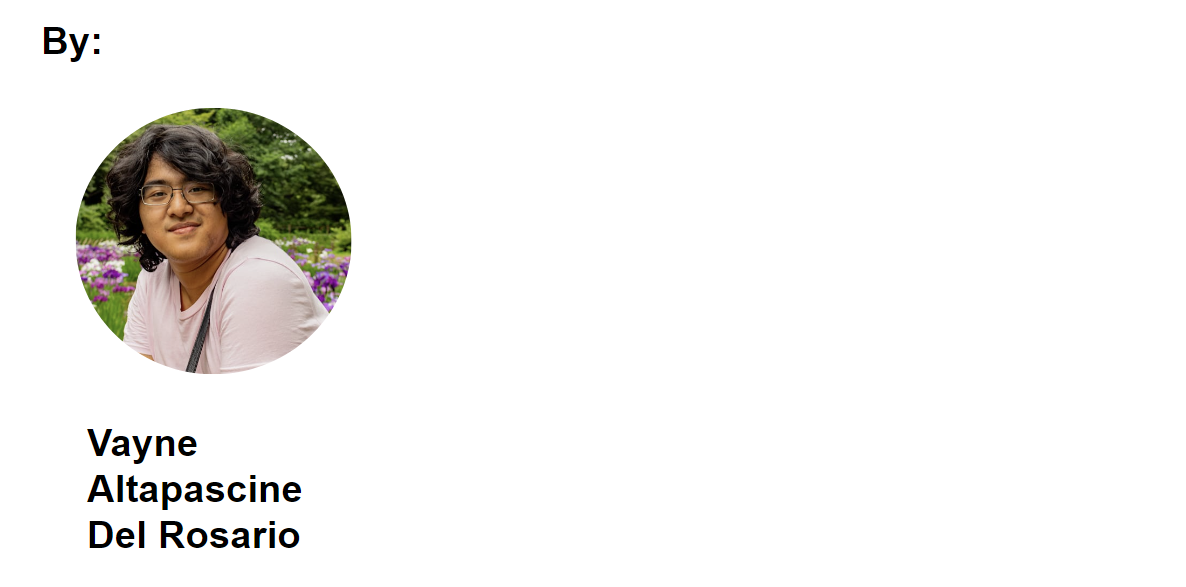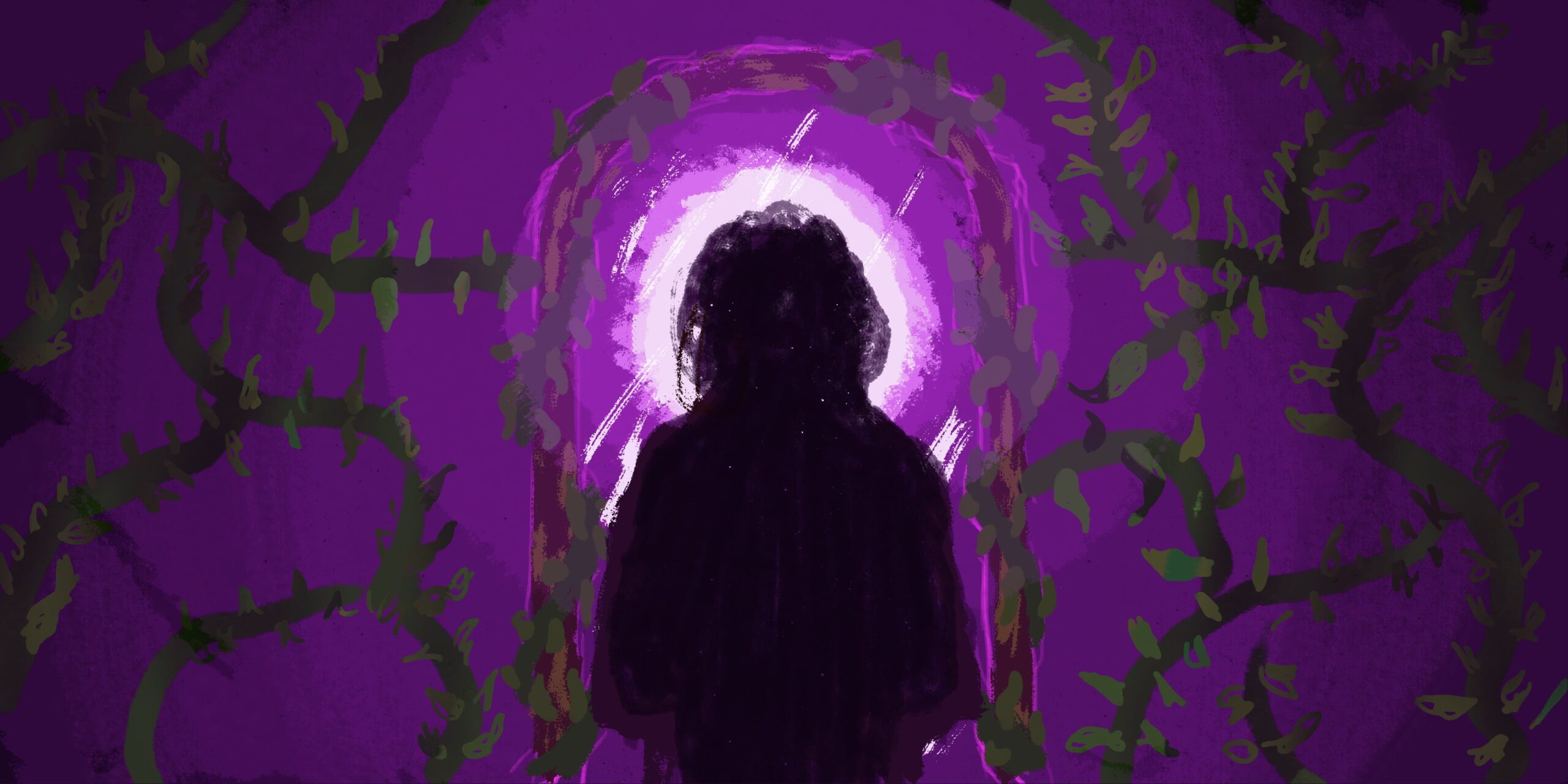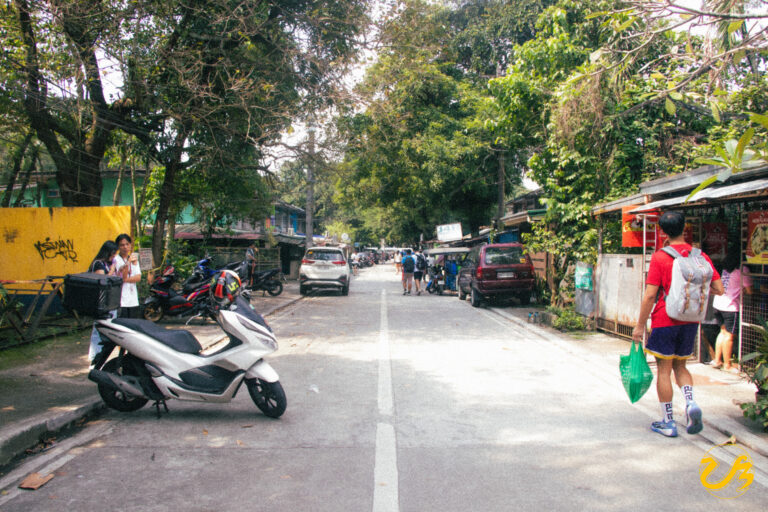
trigger warnings: dysphoria, misgendering, social anxiety, mentions of sexual harassment/assault, mentions of internalized transmisogyny, mentions of transphobia, mentions of murder
“Alright, your name, program, and what you’re looking forward to in this class,” the lecturer said plainly. I’m certain everyone has heard this standard in one class or another– typical trite course self-introduction at the dawn of your first class.
But, to be honest, I was at an impasse. I had introduced myself as my deadname my entire life. From kindergarten to junior high school, everyone knew me by one name and one name only. Sure, in senior high school, I asked a few friends to start calling me a number of different things, but I knew then it wasn’t yet something I was ready to change. Yet here I was in college, living by myself for the first time, in a city I barely knew, speaking to a room full of people who didn’t have anything to me but my face and whatever I said next.
So, for the first time of many, I introduced myself as who I actually was. I finally stood up and said, “I’m Vayne Altapascine del Rosario. You can call me Vayne.”
My Voice is Back Home While I’m Lying in Hell
I think every trans person eventually realizes coming out as trans means you’ll be seen differently. I like to think friends and family don’t mean anything by it, but sometimes you can’t help but wonder if it changes you for them, if you’ve become someone else to them or not. I think there exists a kind of conflict for some about whether or not we want that. Either way, especially damning of this for me is how poorly I “pass”— though I’ve started taking estrogen and wearing my hair long, my physical transition has been hampered by how I have been struggling to deal with the sight of myself as a woman in the mirror.
Self-doubt feels like a fairly natural response to a lot of trans people. Even when you know it feels right, there’s often a small aching part of you that’s learned a kind of helplessness from the rest of the world. After all, you are bathed in a world of transphobia and cisnormativity— there will be pieces of it that stick. There will be parts that hurt in a special way when you bump on them, dulling like sore spots and bruises left behind by something untold. For some of us, those bruises are more literal than others, but almost universally, especially at first, alongside them are stints of mental self-flagellation and psychological self-questioning, urging you on to spiral and wonder whether you have or have not “sufficiently performed” your gender.
I have always been closer to women than men throughout our life and we’ve had many of them teach and raise us in different ways. Since a small age, I knew that the diversity of womanhood is of such immense breadth that to attempt description almost feels like a disservice. But why is it I so often find myself trying to squeeze myself into such small fractions of it? Why is it I scar and seethe at my lacking wardrobe? At my non-use of makeup? At my “incorrect” parts? Why all this alleged longing and loss of womanhood, when I’ve met women who have lacked each one of these pieces and were never, for one second, any less a woman to me?
The trans girl’s mind is, of course, colonized by the need to draw herself from the sketches of her gender’s typicalities. That, to be a woman— to be sure of womanhood— she must be doubtlessly so and conformant to its blueprint. And these pressures are not merely from her own voices within but also from those without. Accusations from her appearance push her out of women’s spaces. Idle chatter and split-second looks make her wary, nervous of social gatherings. And trans-exclusionary policies render her vulnerable to incessant and indefensible violence, whether physical or epistemic, without recourse nor restraint. She fills with worry and wardens herself unsure of her own name. And so she doubts.
She doubts, even when she looks just like her mother. She doubts, even as men use her as an emotional outlet and treat and harass her as the same. She doubts, even when a dress reminds others of how her aunt looked in the same one all those years ago. She is far and enough of a woman as any other, by any reasonable metric. And yet she doubts. Because who would tell her otherwise? Won’t you do good by her and say her name right this time?
Just Bring Me With You, Love
I haven’t a shortage of friends. But the doubt I described betrays a plaintive worry in being close to others. Often, I spend many of my hours living alone, stewing in my personal trauma. I’m often tumbling from one missing appointment to the next, one failing class to another. Typically and unquestionably alone. This is, of course, not a good way to live. But it is harder than one might imagine to go from “I am suffering by being alone” to “I want to suffer less so I will be less alone”. To call on a friend is almost always an act of restraint. See, in my mind’s eye, in the only train of thought I was trained by my transmisic trauma to trust, I was an oddity, a disfigured part of every other friend group. To ask for help is to succumb and force myself into self-recognition. And is there anything quite so Catholic as the nobility of bearing a suffering? In surrendering yourself to a mirror and seeking to correct sin? Assigned by birth and raised “male”, these constructions were admittedly was something I was heavily conditioned with. I have spent much time learning that I must be brave and strong and my feelings must naturally take the backseat— that “as a man”, I must resist the temptation of feeling and resent myself with the turgid honesty of dysphoria. To listen to my inner voices as righteously self-denigrating.
But, as an early-transition trans woman, it feels quite a lot worse than just enduring suffering. Yes, I am not chided for my gentleness or how I feel so deeply (in fact, our friends are relentlessly supportive of our desire to speak honestly about our feelings), but my instinctual response to my feelings is almost always a corrective, almost punitive demand: “am I reacting right?” To respond “correctly” has always been a grave issue. As a trans girl, I find myself prejudging my emotions and thoughts with such vicious prejudice, you would have thought my mind a conservative 65-year-old father’s. Am I too angry? Is my response too emotive? Does it sound like I am pretending?
And this prejudgement might seem ludicrous, because we’re often told that you must allow yourself a feeling in order to process it. But as a trans woman? I am often forced to consider: do I have the time to process this feeling? Do I have that luxury when my queer siblings, people just like me, get insulted, assaulted, and shot dead for the naked sin of having a human feeling? For the human and yet utterly fatal mistake of acting, in someone else’s eyes, a little too much “like a man”? Where a woman is misogynistically berated for the “hold” of her feelings on her decisions, a trans woman is transmisogynistically dehumanized for “denying” a manhood she doesn’t have. And where a woman’s estrogen is misogynistically viewed as an “emotional part” of biology she can’t help, a trans woman’s testosterone is transmisogynistically viewed as a “monstrous” chemical she can’t help but manifest— an unbreakable error that resides in her feelings, in her aggression, in “breaking from pretend”.
And so I made and sharpened a fine discipline. For my own safety. The sacrifice that came with my true name is the “potential foretold” by my false one. So when people say my old name, I wonder what they see in me. Because all I hear is them calling for someone I try not to know at all. He doesn’t deserve it but I curse him anyway. Because who else is to blame? #






